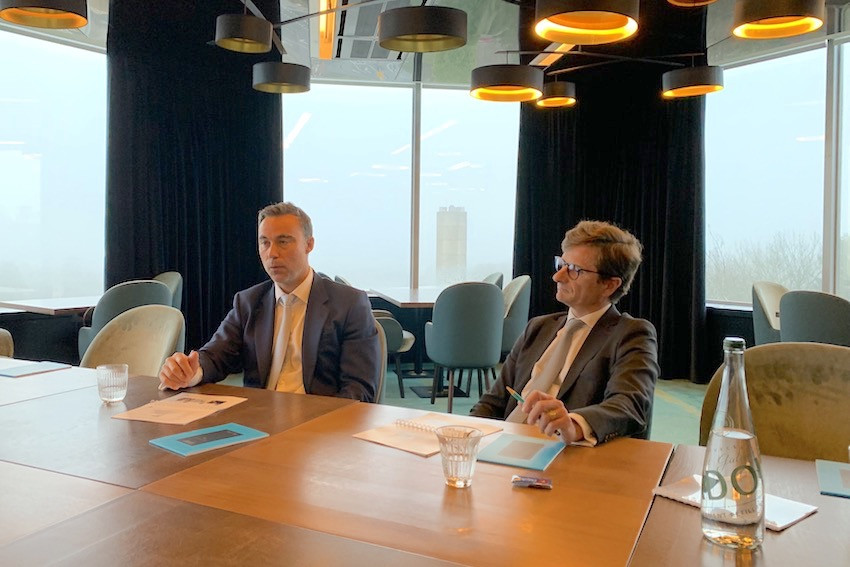Boscher, global chief investment officer for equities at Fidelity International, thinks the global economy can “avoid recession” and is “still expecting recovery” this year, he said in Luxembourg City on Wednesday.
Referring to geopolitical disruptions such as Brexit and the China-US trade war, Boscher posited that “political background noise is here to stay”, but will not be overly influential over the medium term. What will really capture investor interest and drive markets are earnings per share. Earnings per share “did not really decline last year”. Boscher is expecting “high single digit growth in earnings per share in 2020 and 2021.”
Search for yield
In recent years, low and negative interest rates on bonds have forced investors to find yield elsewhere and “I don’t see that environment going away” in 2020, reckoned Steve Ellis, global chief investment officer for fixed income at Fidelity International.
Central banks will want to keep interest rates low to fuel inflation, Ellis said during a press roundtable. This is partly to reduce the mountains of debt that has accumulated on their and governments’ balance sheets over the past decade or so. That means the search for yield will continue.
Higher risks
Boscher commented that the main risks for 2020 and beyond will not be Brexit and the transpacific trade war, but “problems we tend to forget”. He cited challenges in the Eurozone, as, for example, the German and Italian economies continue to diverge.
Ellis reckoned the biggest risk is a recession in the US or fears of recession elsewhere. If markets are convinced that the central banks “have run out of ammunition” (particularly when combined with the lack of fiscal stimulus), he would expect to see a sharp rise in defaults on higher yield bonds.
Lower risks
Boscher placed real estate prices as a slighter threat to the world’s economy. Investors should “keep an eye on” the possible bursting of property bubbles in places like Australia, Canada and China (he did not mention Luxembourg, but it is a concern here too). “The risk has not disappeared, but should be manageable”.
Fidelity International is one of the world’s bigger investment managers with roughly €247bn in assets under management, per Investment & Pensions Europe. Boscher and Ellis were in Luxembourg for meetings with professional investors.
Portfolio rebalancing
Referring to professional investors, Boscher said that Fidelity is “convinced for 2020 it’s time to rebalance your portfolio” to mix growth and value holdings and have more geographic diversity.
Predicting that inflation is likely to rise this year, Ellis argued in favour of inflation-linked bonds, which are “underpriced” in his view. Ellis also stated that emerging market debt “still looks pretty attractive”, as do high yield Asian (especially Chinese) bonds and investment grade Asian debt.
Environmental factors
The firm is “neutral” and the oil sector and “negative” on natural gas. Boscher explained that climate change now has a “big role on valuation” decisions. There has been a “lasting change for” energy firms, which potentially face higher financing costs. “Like tobacco for decades” large energy outfits are “now under pressure”.
Rather than simply dump stocks, investors “have to engage”. Firms like BP and Total “have made huge investments in renewables”. Boscher said investors should help them transform their balance sheet. That said, “yes, [there is a] lasting discount for this sector” that requires a value premium or more attractive risk/return ratio.
Ellis pointed to August/September 2019, when fears of US recession created a credit spread for shale gas producers that “never retraced much”. He noted an “appetite for more ESG products” and a marked change in investor appetite towards more environmentally oriented investments.
